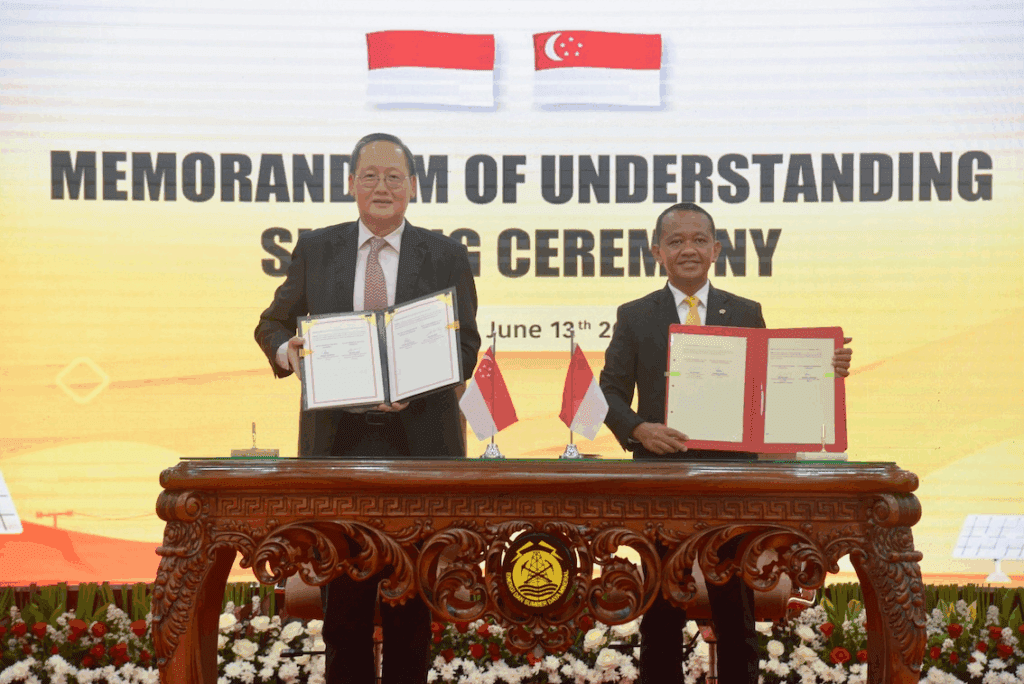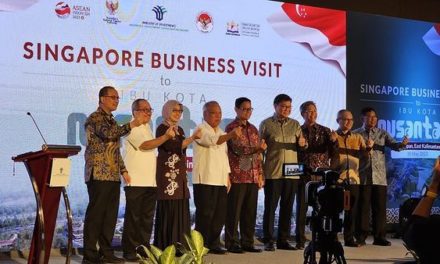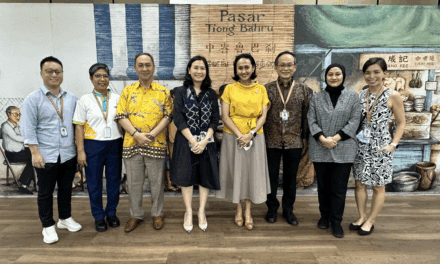
Three MoUs signed to boost clean electricity trade, develop green industry zones, and advance cross-border carbon storage initiatives
The Governments of Indonesia and Singapore have formalised a significant step forward in regional green energy cooperation by signing three Memoranda of Understanding (MoUs) on the development of environmentally friendly energy. The agreements were signed on Friday, 13 June, at the Ministry of Energy and Mineral Resources (ESDM) in Jakarta by Indonesia’s Minister of Energy and Mineral Resources, Bahlil Lahadalia, and Singapore’s Minister for Manpower and Second Minister for Trade and Industry, Tan See Leng.
Minister Bahlil described the moment as a historic milestone in the long-standing energy partnership between the two countries, highlighting three key areas covered by the MoUs: clean electricity trading, carbon capture and storage (CCS), and the joint development of a green industrial zone in the Riau Islands Province. “These agreements reflect a shared commitment not only to national energy and climate goals but to collective regional prosperity and sustainability,” he stated.
The first MoU focuses on the creation of a Sustainable Industrial Zone (SIZ), particularly in Batam, Bintan, and Karimun (BBK), aimed at attracting investment in renewable energy and supporting cross-border electricity trade. A joint task force, co-chaired by Indonesia’s Ministry of Energy, will oversee its implementation to ensure a low-carbon, sustainable industrial framework with robust infrastructure and a favourable investment climate.
The second MoU covers cross-border electricity interconnection and trade, renewable and low-carbon energy technologies, and energy efficiency and conservation. It underlines Singapore’s interest in sourcing clean electricity from Indonesia to fuel its green industry transition and significantly reduce carbon emissions in both countries.
The third agreement supports cross-border carbon capture and storage, capitalising on Indonesia’s abundant geological formations suitable for long-term CO₂ storage. Given Singapore’s limited capacity for onshore storage, the MoU provides a legal and technical framework for the international capture, transport, and storage of carbon emissions, in line with global carbon accounting standards.
These agreements are expected to set a precedent for regional cooperation in the clean energy sector, offering a mutually beneficial model for sustainability, innovation, and energy transition in Southeast Asia.
Source: Ministry of Energy and Mineral Resources of the Republic of Indonesia







